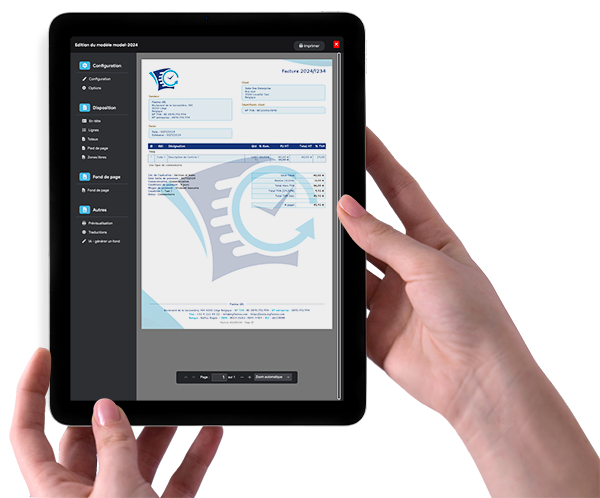Introduction
The year 2024 marks for Luxembourg the reinstatement of pre-2023 VAT rates, a key step for the country's businesses. This change requires Luxembourg entrepreneurs to quickly readjust their accounting and invoicing practices to stay in line with these new tax directives. This guide is designed to help you navigate through this transition period, focusing on strategic actions to take for an effective update.
Faced with this change, it is crucial for businesses operating in Luxembourg to review their financial management systems. Solutions like Flexina, adapted to the Luxembourg tax environment, will be an asset to facilitate these adjustments. However, a thorough understanding of the implications of these tax changes and careful planning are essential to ensure a compliant transition.
VAT Rate Changes
- Standard Rate: Increase from 16% to 17%. This rate applies to the majority of goods and services and its increase will have a direct impact on the selling prices of many products and services.
- Intermediate Rate: Rise from 13% to 14%. This rate is generally applied to certain specific goods and services, such as certain food products, passenger transport, etc.
- Reduced Rate: Change from 7% to 8%. This rate concerns particular goods and services, such as books, hotels, or certain cultural services.
- Super Reduced Rate: Maintained at 3%. This rate remains unchanged and applies to essential products such as food products, medicines, and certain educational and social services.
These rate changes require rapid adaptation of pricing and invoicing systems for businesses. It is important for entrepreneurs to understand which categories of products or services these different rates apply to, in order to ensure correct and compliant updating of their systems.
Economic Context of the Changes
Faced with post-COVID inflation, the Luxembourg government had temporarily reduced VAT rates in 2023. This return to previous rates is an important step in post-pandemic economic stabilization.
Implications for Businesses
- Updating Accounting and Invoicing Systems: Businesses must update their accounting and invoicing software to integrate the new VAT rates from the beginning of 2024. The online invoicing software Flexina will automatically update these rates, thus simplifying the process for its users.
- Management of Ongoing Quotes and Deposits: It is essential to pay particular attention to ongoing quotes and deposits when VAT rates change. Businesses should review these documents to ensure they comply with the new VAT rates, particularly for transactions that extend beyond the rate change date. In this situation, it is strongly recommended to contact an accountant for specific advice on the best way to manage these documents and comply with new tax regulations.
- Price and Margin Readjustment: Businesses must review their pricing structures to maintain profitability while remaining competitive.
- Communication with Customers and Suppliers: Clear and proactive communication is essential to inform stakeholders of upcoming changes.
- Tax Compliance: Particular attention must be paid to tax compliance to avoid sanctions and penalties.
Practical Tips for a Successful Transition
- Advance Planning: Start now to prepare for the transition to new VAT rates. This includes updating accounting systems, reviewing prices, and adjusting sales and purchasing strategies. Good planning can help avoid disruptions and ensure a smooth transition.
- Team Training: Ensure that your teams, particularly those in charge of accounting and tax management, are well informed and trained on the new VAT rates. Training sessions and workshops can be useful to update their knowledge and skills.
- Expert Consultation: It is recommended to work closely with accountants or tax advisors. They can offer personalized advice and help navigate the technical and legal aspects of VAT rate changes.
Conclusion
With the restoration of VAT rates in 2024, Luxembourg enters a critical phase of tax readjustment. This period represents not only a challenge for businesses, but also a unique opportunity to review and optimize their tax and accounting processes. The use of solutions such as Flexina invoicing software, which automatically adapts to VAT rate changes, can be a major asset. Strategic planning, continuous team training, and collaboration with accountants are essential to ensure a smooth and compliant transition. These changes offer businesses the opportunity to strengthen their operational efficiency and market positioning in a constantly evolving tax environment.




